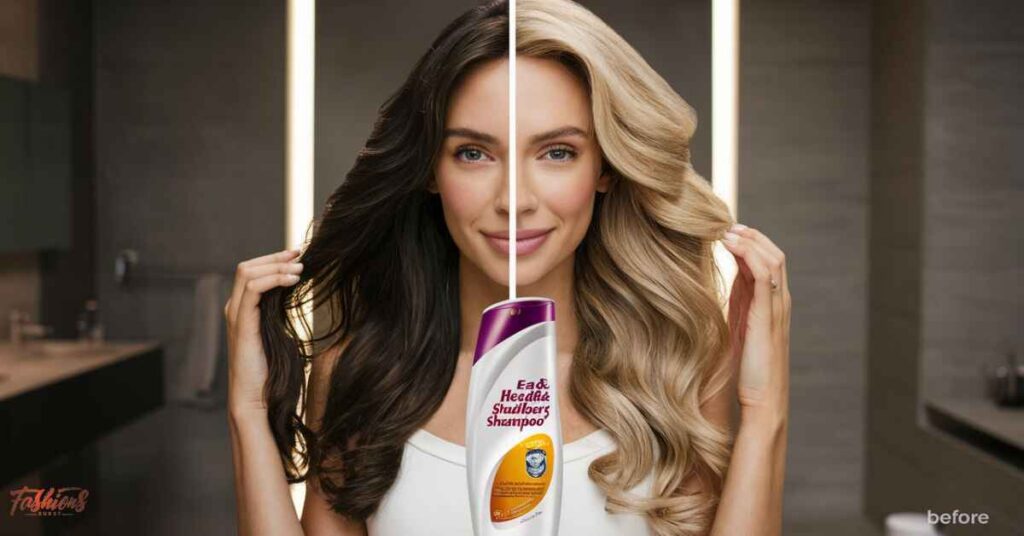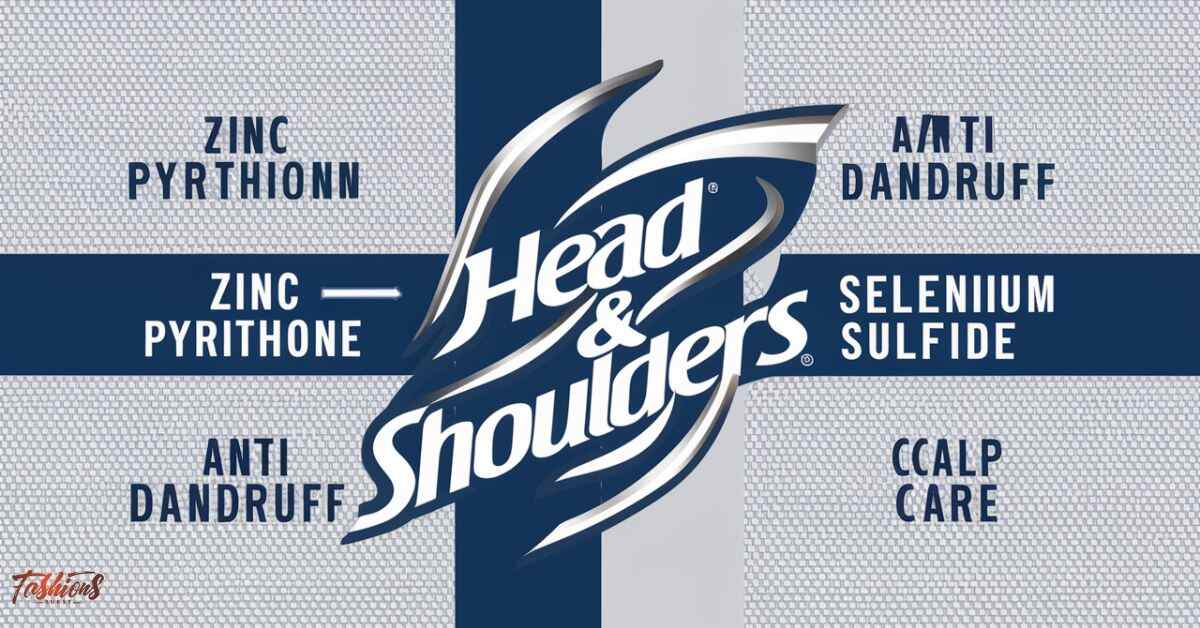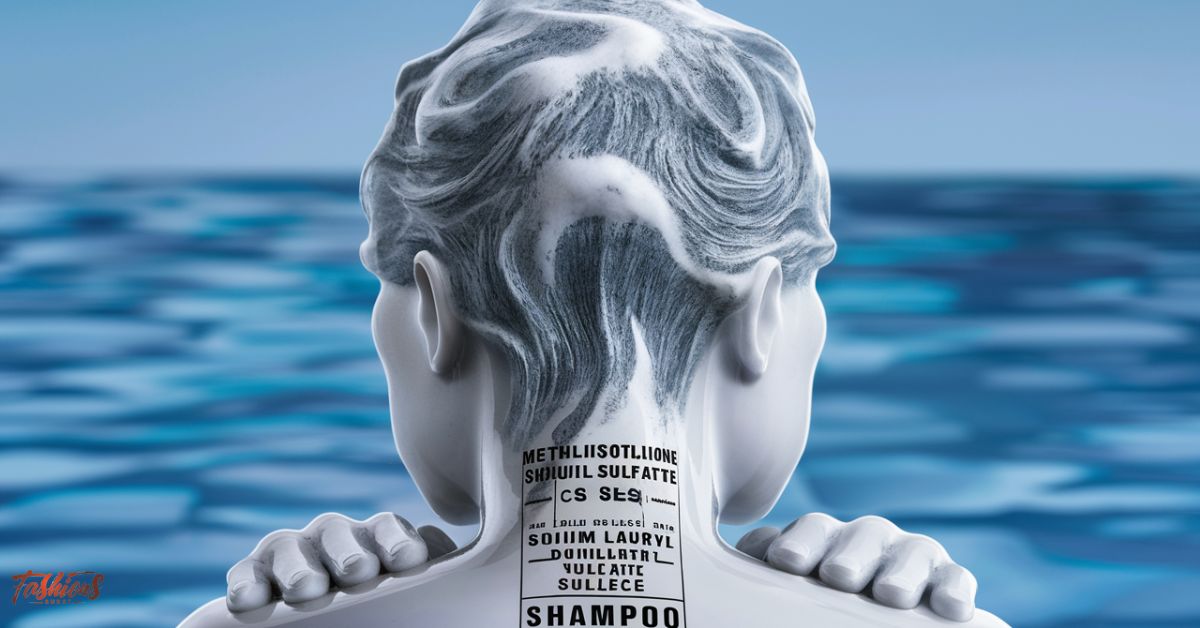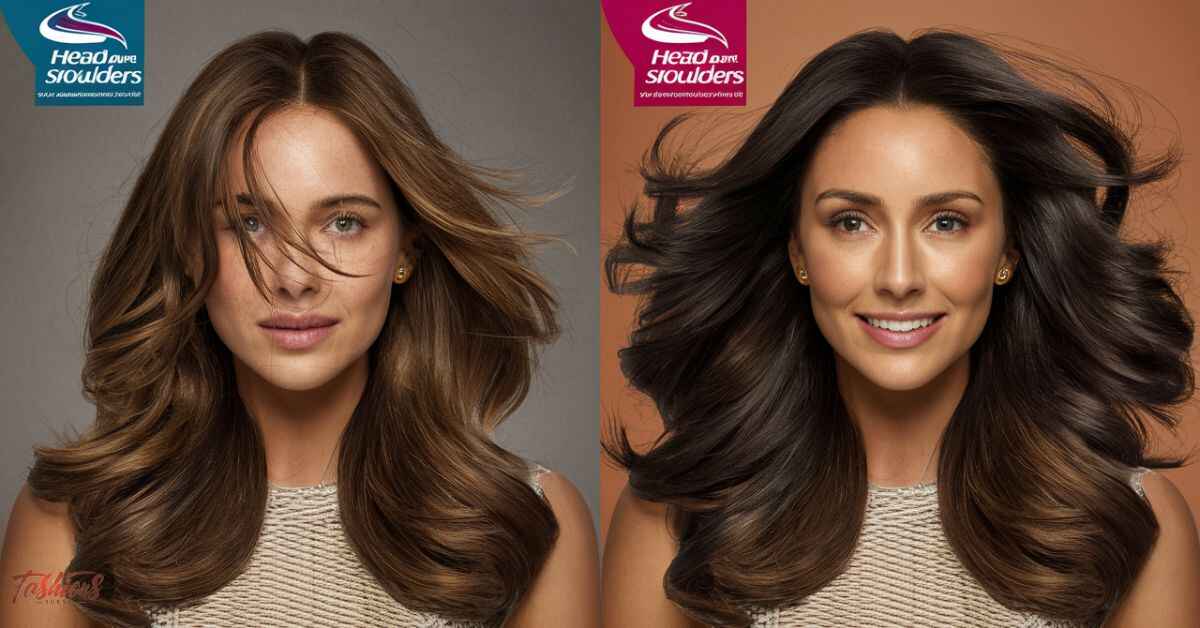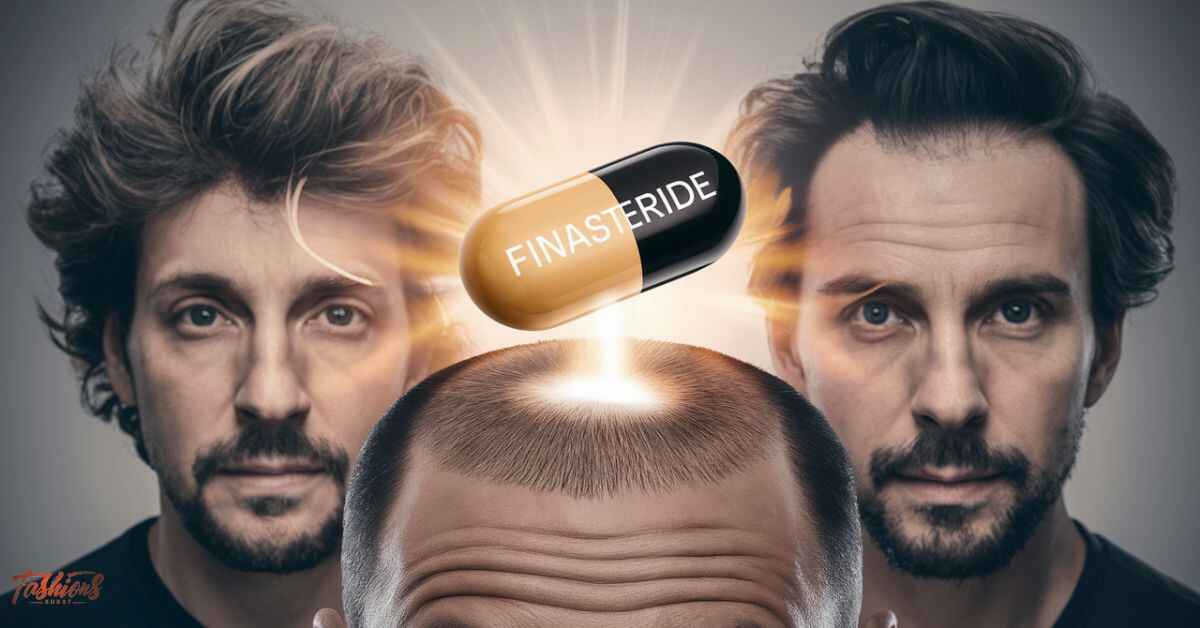Hey there! Ever had one of those days where you notice little white flakes on your shoulders? If so, you’ve probably reached for the iconic blue bottle of Head & Shoulders at some point. After all, it’s one of the most popular dandruff shampoos around.
is Head & Shoulders actually bad for your hair?
There’s been some buzz about whether these anti-dandruff products could be doing more harm than good.
Well, let’s dive in and separate fact from fiction once and for all. By the end of this, you’ll have all the deets to decide if Head & Shoulders deserves a permanent spot in your shower.
What are the active ingredients in Head and Shoulders shampoo?
To understand the Hair & Shoulders hair-quality debate, we need to start by looking at what’s actually in those bottles. The two main active ingredients are:
- Zinc Pyrithione
- Selenium Sulfided
Pretty fancy names, right? Here’s what you need to know about each one:
Zinc Pyrithione (ZPT): This antimicrobial compound helps treat dandruff by disrupting fungal growth on the scalp. Specifically, it binds to proteins the fungi need and increases copper levels, which prevents them from thriving.
Selenium Sulfide: An anti-fungal and anti-bacterial agent, selenium sulfide tackles dandruff in a similar way. It slows down the excessive shedding of skin cells and stops the Malassezia yeast (a dandruff culprit) in its tracks.
Is Head and Shoulders Bad for Your Hair? Ingredients Breakdown
So now that we know the main players, let’s take a closer look at how each ingredient could potentially impact your precious locks:
Zinc pyrithione (ZPT)
As we covered, zinc pyrithione is the star anti-dandruff compound in Head & Shoulders’ classic shampoos and conditioners. Its ability to keep scalp fungi under control is well-documented.
But could it actually help with hair growth and thickness too? Some evidence points to yes!
A 2002 study compared the effects of:
- 1% zinc pyrithione shampoo
- 5% minoxidil solution (a hair loss treatment)
- A placebo
- A combination of the two
After 6 months, the zinc pyrithione group showed significantly improved hair growth and hair counts compared to the placebo. Not quite as effective as minoxidil, but better than nothing!
The takeaway? While zinc pyrithione may not be a miracle hair re-growth serum, it does seem to promote a healthier, less dry, flake-free environment for your follicles to thrive.
However, some people can experience allergic reactions like contact dermatitis from this ingredient. So it’s not 100% problem-free.
Selenium sulfide
Now for Head & Shoulders’ other heavy-hitter: selenium sulfide. While effective for many, this one comes with a bit more risk for your hair.
On the plus side, studies confirm selenium sulfide can significantly reduce scalp redness, itchiness and flakiness caused by conditions like seborrheic dermatitis. All good things when you’re battling dandruff.
The not-so-great news? High concentrations of selenium sulfide have been linked to potential hair loss and thinning for some people.
For example, one study found increased shedding and slower hair regrowth in participants using a selenium sulfide shampoo long-term. The proposed reasons included:
- Excessive scalp irritation
- Nutrient deficiencies caused by selenium’s interaction with proteins
So while the 1% concentrations found in OTC Head & Shoulders may not be an issue for everyone, those with extra sensitive scalps may want to tread carefully.
Inactive Ingredients
We can’t ignore those “inactive” ingredients either – preservatives, sulfates and other compounds that create the shampoo’s lather and texture. Some biggies in H&S products include:
- Methylisothiazolinone: A preservative linked to allergic reactions in some
- Sodium lauryl sulfate (SLS): A cleaning agent that can be drying/irritating
- Sodium laureth sulfate (SLES): A gentler surfactant, but still potentially irritating for some
For people with sensitives scalps, these inactive ingredients could potentially exacerbate any irritation from the active components as well.
So while they don’t directly cause hair loss, they may create an environment where your hair and scalp are more prone to issues.
Does Head and Shoulders Cause Hair Loss?
Let’s get to the million dollar question – can using Head & Shoulders lead to excessive shedding or impaired hair regrowth?
The short answer: maybe, but it’s probably not a universal hair killer.
Why hair loss might happen
As we discussed, high doses of selenium sulfide have been associated with increased hair fall and sluggish regrowth in some studies. The exact mechanisms aren’t fully understood, but likely involve:
- Irritation and inflammation: An aggravated, constantly inflamed scalp isn’t an ideal environment for healthy hair growth.
- Nutritional deficiencies: Selenium may bind to proteins and interfere with nutrient absorption needed for hair cells.
- Direct follicle disruption: Some hypothesize selenium could potentially disrupt the hair growth cycle when it penetrates too deeply.
However, most of these effects have been seen at concentrations higher than the 1% selenium sulfide levels in standard Head & Shoulders products. So they may not apply universally.
The zinc pyrithione could theoretically contribute to hair shedding as well if you experience a bad reaction or allergic response. But again, most don’t have issues with standard use.
On the other hand, the clinical evidence suggests zinc pyrithione may actually provide some modest hair growth benefits compared to no treatment at all.
In essence, your personal sensitivity, hair type, concentration of product used, and frequency of use are all critical factors. These factors determine whether or not Head & Shoulders could trigger or worsen hair loss for you.
Do Head and Shoulders products damage your hair?
To really dig into the hair damage debate, let’s look at how Head & Shoulders’ ingredients stack up against other hair loss treatments like minoxidil:
A 2004 study compared the effects of:
- 5% topical minoxidil solution (hair growth treatment)
- 1% zinc pyrithione shampoo
- Placebo
- Combination of minox and zinc shampoo
The results? Using the zinc shampoo alone did improve hair growth and hair counts…but only about half as effectively as the minoxidil solution alone.
The real winner was actually the combined zinc pyrithione & minoxidil treatment – suggesting the shampoo can work synergistically with regrowth treatments.
While Head & Shoulders may not be the most powerful hair loss treatment, there’s no definitive evidence that the products inevitably lead to damage. They also do not cause accelerated shedding.
While Head & Shoulders may not be the most powerful hair loss treatment, there’s no definitive evidence that the products inevitably lead to damage. They also do not cause accelerated shedding.
Read this blog: Does Mounjaro Cause Hair Loss? Expert Review (2024)
Side effects of Head and Shoulders
Like any hair product containing active drugs, Head & Shoulders does carry some potential side effects to be aware of, including:
- Scalp irritation/redness: Either from the active ingredients or inactive surfactants
- Dry, brittle hair: Especially with the stronger Clinical Strength formulas
- Discoloration: Some formulas can temporarily tint hair a yellowish, greenish, or purplish hue
- Allergic reactions: Including skin rashes or respiratory issues in severe cases
The good news? Most side effects are relatively mild and can be minimized by:
- Starting with the gentler, lower concentration Daily Shampoo formula
- Doing a strand test and monitoring for excessive shedding
- Rotating in a gentle, sulfate-free conditioner or hair mask weekly
- Only using 1-2 times per week rather than daily
Those with very sensitive skin, eczema, or psoriasis may find the Classics range too irritating overall. In that case, the dermatologist-recommended route is best.
Hair loss treatments delivered
If you are experiencing excessive shedding or thinning despite treating dandruff, it may be time to explore more intensive hair regrowth treatments. Some FDA-approved options include:
Topical Finasteride
A relatively new product containing finasteride (originally an oral medication). Applied directly to the scalp, it treats hair loss by blocking DHT production.
Minoxi
Here is the continued in-depth blog post on “Is Head & Shoulders Bad for Your Hair?”:
Minoxidil Solution
One of the most common and effective hair loss treatments, minoxidil is a topical solution that prompts fuller, thicker hair growth when used consistently. Common concentrations include:
- 2% minoxidil for women
- 5% minoxidil for men
It can be used alone or combined with other treatments like finasteride for enhanced results.
Finasteride & Minoxidil
This potent combo tackles hair loss on multiple fronts. Finasteride (taken orally) blocks DHT hormone that shrinks follicles, while minoxidil reactivates and revitalizes shrunken follicles.
Many dermatologists recommend using both medications together, especially for more advanced hair loss.
Oral Finasteride
An oral pill that became one of the first FDA-approved drugs for male pattern baldness. It works by inhibiting the production of DHT to stop hair follicle miniaturization.
While very effective, oral finasteride does carry some potential sexual side effects that need to be discussed with a doctor.
Minoxidil Foam more hair… there’s a pill for that
For those who prefer a liquid-free application, hair loss foams like men’s or women’s Rogaine provide a mess-free way to get your daily dose of minoxidil.
The key with any hair loss treatment is consistency. Seeing results takes months of continuous use. So hang in there!
Delimahair has given me so much more confidence. After years of feeling self-conscious about my thinning hair, I finally have the full, thick locks I’ve always wanted.” (Jessica H)
Also read: How Much Are Hair Extensions?
Will you join thousands of happy customers?
If you’re ready to take control of your hair journey, Delimahair’s all-natural, medical treatments can help get you permanent, clinically-proven regrowth. No snake oils, no sketchy transplants – just affordable solutions backed by science.
Take the free hair assessment now to get product recommendations for your hair needs →
Frequently asked questions
Is it good to use Head and Shoulders everyday?
No, using it every day can cause scalp irritation; limit to 1-2 times per week.
Do Head and Shoulders strip your hair?
It can strip natural oils, especially if used frequently.
Does dandruff cause hair fall?
Dandruff itself doesn’t cause hair fall, but itching can lead to hair breakage.
What is the best shampoo for dandruff?
It depends on your scalp type; Head & Shoulders, Nizoral, and Selsun Blue are popular options.
Is Dove good for hair?
Dove is generally good for hair, offering mild formulations that moisturize.
Is Sunsilk shampoo good for hair?
Sunsilk can be good for hair, but it depends on individual hair needs and scalp sensitivity.”
Conclusion
So there you have it – a deep dive into the hair quality debate around Head & Shoulders. The shampoos do contain ingredients that could potentially cause issues for some users.
However, there’s no definitive evidence they inevitably lead to widespread damage or accelerated hair loss when used as directed. For most people, Head & Shoulders can be an effective, affordable way to manage dandruff and create a healthier scalp environment for hair to thrive. The key is:
- Sticking to the lowest concentration formula that provides relief
- Being aware of any negative reactions
- Not using medicated shampoos every single day
- Incorporating a gentle, hydrating conditioner into your routine
Essentially, Head & Shoulders is unlikely to be the sole culprit if you’re experiencing excessive shedding or impaired regrowth. But it could certainly contribute if you react poorly to the active ingredients or suffer from underlying scalp irritation.
The bottom line? Listen to your hair! If it seems happier without Head & Shoulders, ditch it. But for millions who rely on it, a little zinc pyrithione or selenium sulfide isn’t necessarily a death sentence for luscious locks.
Have you had a good, bad, or mixed experience with Head & Shoulders and your hair? Drop a comment and share your thoughts below!

